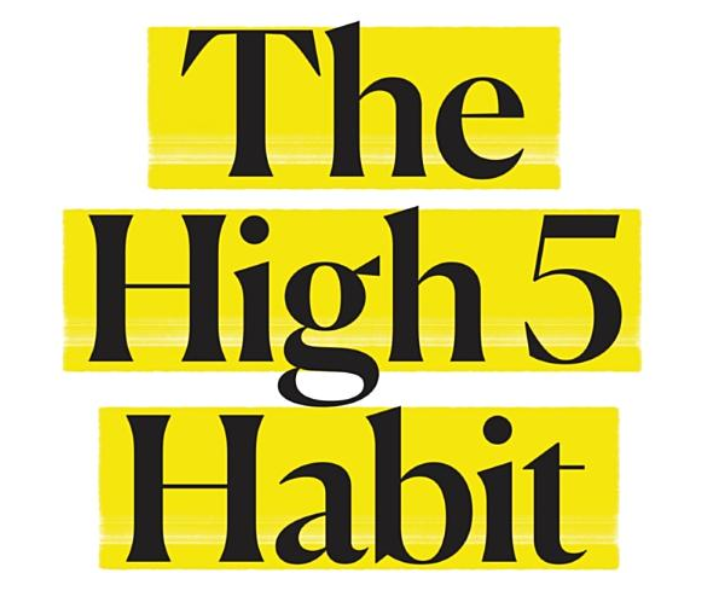The High Five Habit

In the High Five Habit, Mel Robbins, the author of The 5 Second Rule, shares how a simple habit can change a life. She shares why we shouldn’t apologize so much in the book and what a “high five” does to our brain.
The high five habit involves standing in front of a mirror every morning and high-fiving our reflection. High fiving ourselves gives us the ability to reflect on the positive and avoid being critical of ourselves. Robbins shares it feels a little odd but feels good.
While it can feel a little off to high five ourselves, science backs up the practice. Think about high fives in your life. When did you receive them? What memories do they stir? There was an experiment where kids were given a task and motivated differently. Some were praised for a trait. Others praised for effort. The third and final group celebrated with high fives. The high-fivers were the group that felt the best and kept at it the longest.
Why? Neurobics. Neurobics combine something familiar—like brushing our teeth—with something unfamiliar, like high-fiving, our brains pay attention and create new neural connections.
So, how to start a high-five habit? Put a note on your bathroom mirror as a reminder. Post-its! Shoot for five days row.
New habits can be challenging because of RAS—the Reticular Activating System. The whole job of RAS is to filter all the information we receive every day. RAS tells our brains to ignore what’s not essential. Wonder why when someone yells your name in public, you stop and pay attention? That’s RAS in action.
Want a reason to be more positive? If negativity is an integral part of your life, RAS will prioritize it.
So, how do we focus on being positive? Focus on being kind to yourself. Focus on supporting yourself. Choose a mantra. For example, “Every day, in every way, I’m stronger and stronger.”
In addition to being positive, be thankful, not apologetic. For example, thank someone for an airport pickup instead of apologizing for the pickup.
In summary, high five yourself, pay attention to RAS, stay positive, and focus on gratitude instead of apologizing.